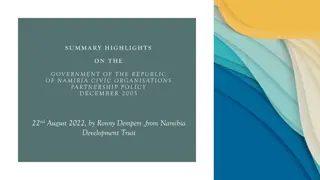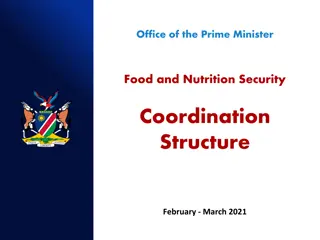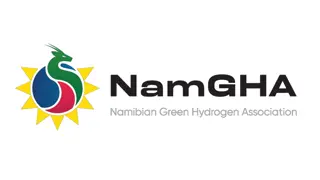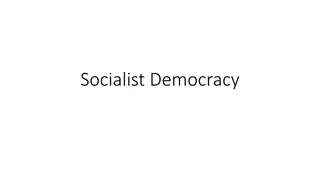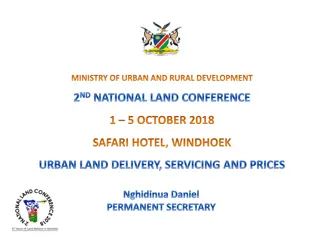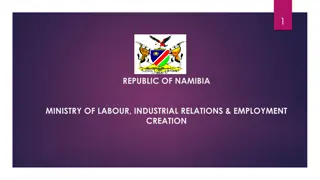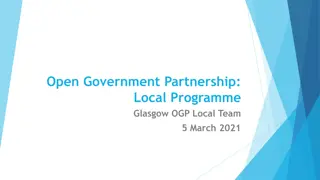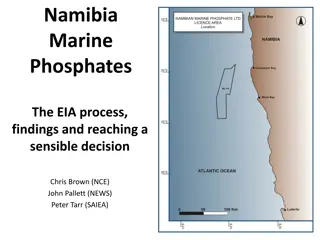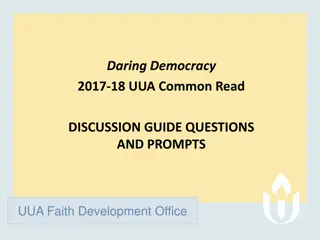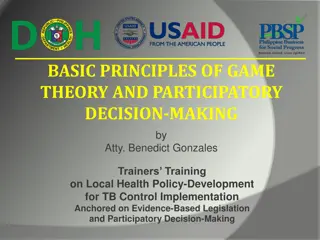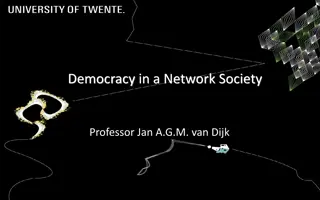Enhancing Participatory Democracy in Namibia: EPDN Programme Review
The EPDN Programme aims to enhance participatory democracy in Namibia by strengthening collaboration between Civil Society Organizations, Government, and Parliament in education, skills, and rural development sectors. Specific tasks include assisting in the implementation of the Civic Organisations Partnership Policy and establishing a Government-CSOs Partnership Forum. The process involves reviewing the current policy, identifying a competent team, assessing capacity deficits, recommending collaborative mechanisms, and fostering effective engagement.
Download Presentation

Please find below an Image/Link to download the presentation.
The content on the website is provided AS IS for your information and personal use only. It may not be sold, licensed, or shared on other websites without obtaining consent from the author. Download presentation by click this link. If you encounter any issues during the download, it is possible that the publisher has removed the file from their server.
E N D
Presentation Transcript
Roll-out of the GRN-COPP Review under the Enhancing Participatory Democracy in Namibia (EPDN) Programme Dr. Anthony Tsekpo, KE2
The EPDN Programme The EPDN Programme (July 2020 (July 2020 - - June 2025) Overall objective: to contribute to the national development goals for education and skills and rural development June 2025) Specific Objective: to strengthen the collaboration and coordination between CSOs, Government and Parliament in the implementation and oversight of public policies and programmes, particularly but not restricted to the sectors of education and skills and rural development, thereby enhancing participatory democracy in Namibia 2
Results to be achieved Results to be achieved Result 1 Civil Society Organisations and Parliament have increased capacity to collaborate and coordinate in the oversight of public policies and programmes; Result 2 Civil Society Organisations and Government have increased capacity to collaborate and coordinate in the implementation of public policies and programmes, in particular, but not restricted to, the sectors of education-skills and rural development; and 3
Specific Task Assigned Assist Government in the implementation of the Civic Organisations Partnership Policy, including the establishment and facilitation of the Government-CSOs Partnership Forum, at least in the sectors of Education and Skills and Rural Development and with Organisations working with women/gender and minorities. First Step Review the Policy to gain an understanding of how to Proceed.
Process Identify a competent Team to help with the review - Done Current legal and policy framework Alternatives legal and policy framework Identify suitable vehicles for the coordination of Government-CSOs engagement Assess any capacity deficits among CSOs that may affect effective policy dialogue and implementation of GRN projects and recommend measures to rectify Identify mechanisms to allow CSOs to bid for implementation of GRN projects Recommend appropriate collaborative mechanisms Identify any other issues that may foster dialogue and effective engagement
Process contd. Inception Phase 12 21 September 2022 Review of documents Interaction with Key Stakeholders Preparation and Submission of Inception Report detailing time-table for the remainder of activities for effective review Approval of Inception Report 1 Week (End of September) Consultations with CSOs and Drafting of Report 6 Weeks (Beginning 1 October) Technically this is subject to change based on the inception stage findings Submission of Report.
Conclusion The Expected Outcome Recommendations that will guide all parties on viable models of collaboration and partnerships Options of updated policy or new policy? Let us keep an open mind no speculations.




